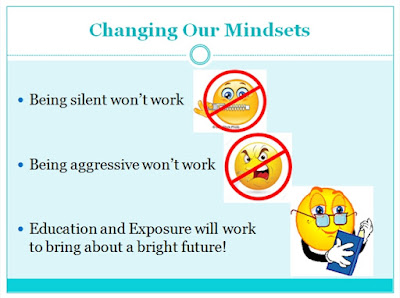Recap of the January 2016 Gilbert Supporters of the Gifted Guest Lecture
How to Talk About Giftedness - PART 3
What do giftedness and men’s height have in common?
Giftedness is usually defined as those members of the population whose intelligence is found in the 97
th percentile or above, or in about 3% of the population. What if men’s height were to be plotted on the same bell curve? Below you can see that a man’s height of 6’4” is at the 97
th percentile ranking, indicating that any man who is 6’4” or taller is found in less than 3% of the population.
Now, does intelligence in the 97th percentile or above mean that gifted child is destined to being a successful rocket scientist? Let’s ask a different question. Does a man’s height in the 97th percentile or above mean that he will be a successful pro basketball player? Are they both guaranteed a yellow brick road in life? The answers to these questions is an emphatic NO.
I have a friend who is 6’10” and he shared with me some opportunities and challenges that have come with his height.
Opportunities:
• Reach high places without step stool
• Can see in a crowd and be found in a crowd
• HS Basketball team
• College basketball scholarship
• Traveled Europe as a professional basketball player
• Has a commanding presence at work
Challenges: The world is not made for those in the 97th percentile …
• Was bullied in elementary and junior high
• Must buy clothes and shoes at a specialty shop. He is very appreciative of the Internet shopping!
• Low doorways
• Car shopping (Are adjustable seats adequate? Does head hit the roof? Etc.)
• Airplane seating. For comfort he must sit in the exit isles, which ALWAYS costs extra!
Our Call to Action
Gifted Children, like children who are atypical in height, have unique needs and are often treated unfairly. Share the example of height as you provide a comparison when discussing giftedness. It will lower the listeners defenses and help them look at the issue in another light.
When the statement is made “It’s not fair,” ask the follow-up question, “To whom?” If accommodations are being sought for a gifted child, how is this not fair to the typical child? If the purpose of school is to learn and grow, then how is providing a learning opportunity for one child, but not another, considered fair?
In the Marland Report to Congress it was stated, “Gifted and Talented children are, in fact, deprived and can suffer psychological damage and permanent impairment of their abilities to function well which is equal to or greater than the similar deprivation suffered by any other population with special needs.”
As a nation we have a problem:
- Fastest growing homeschooling population is gifted children (often because children are misunderstood in the classroom, and not just for academic reasons)
- There is the persistent belief that giftedness is only an academic or education issue
- We cannot expect professionals to be able to meet the needs of these children when burdened by society’s misunderstandings
Tips to Have Good Conversations
|
|
“We fear things in proportion to our ignorance of them” – Livy
|
|
Help people be more comfortable with the conversation about giftedness -
· Make eye contact (sincere not aggressive)
· Believe in the conversation (know you are helping kids who can’t help themselves)
· Use humor
· Use analogies
· Find common ground (want to help all children)
· Concentrate on gaining understanding through empathy
· Be alert to opportunities and be brave in speaking up
· Rely heavily on science and reason – better received “research is beginning to show…”
· Use the word GIFTED without embarrassment/accept it when someone calls your kid smart
· Separate yourself and/or your child from the conversation when appropriate
· Use your own passion and affiliations to:
o Share with professionals (pediatricians, family therapists, etc.)
o Comment on social media
o Be public: Respond to blogs, write articles, have conversations, conduct meetings, teach, present…
With positive persistence, using analogies that are easy to relate to, we CAN talk about giftedness, dispelling myths and advocating well for our own children.
Stay tuned for part 4 in this series – The Gifted Child’s Bill of Rights










